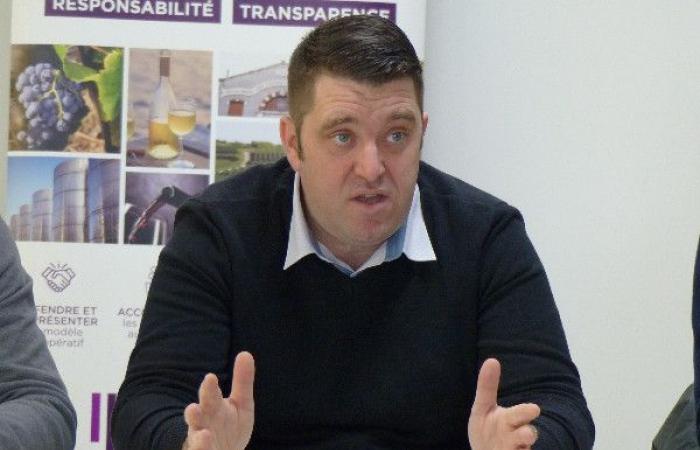While the award-winning uprooting of vineyards is no longer a dirty word in Brussels, the deferred restructuring tool requested by the French sector must reinvent itself to achieve its ends. An update with Languedoc winemaker Ludovic Roux, vice-president of the Copa-Cogeca wine group and vice-president of Europe for Vignerons Coopérators de France.
M
Now that the conclusions have been released, what is your assessment of the High Level Group on European wine policies?
Ludovic Roux : It was already a very good thing that it happened. We are very satisfied that this is leading in a direction that is going in the right direction. There are many interesting points to be noted, for the moment we are only talking about a given direction, which must quickly become a reality. It is important to strengthen the means of market management with the clear return of the word grubbing up and the possibility of state aid simplifying the process. Actions are needed in the coming months to be able to implement the definitive uprooting if there are needs. I am not saying that we must uproot again in France, but that we must have the possibility depending on the case. The market is complicated today and depending on the wine-growing areas the situations are very different in terms of stock. Access to grubbing with state funds is also important for other countries, such as Spain and Italy.
The fact of writing the possible use of European funds to finance grubbing up in the future Common Agricultural Policy (CAP) is also important in order to be able to deploy larger sums and have action at European level (allowing better control of its use territorial). Being able to set requests for new planting authorizations to 0% in an area where we are uprooting also makes it possible to reintegrate management. Like the extension to 5 years of replanting authorizations. There was a wave of liberalism in Brussels, we even had to save planting authorizations, but we are returning to real management. There is also budgetary flexibility with the possibility of transferring an unused envelope from one year to the next and facilities for implementing climate and geopolitical risk management.
Even if it is not said like that, there is an opening on the Olympic average, which is central for adaptation to climate change. I also note the mention of strengthening farmers in the value chain. It is said and written that we must strengthen Professional Organizations (PO) and cooperatives. The fact of recognizing that cooperative cellars can be considered as SMEs is very important. We cannot ask on the one hand to structure cooperative cellars to gain competitiveness and on the other hand remove access to certain aid as we would be large companies… A cooperative cellar remains an association of small operators. We ask to have access to funds, no more and no less than others.
This strengthening of OPs and this classification of cooperatives as SMEs raises eyebrows among Independent Winegrowers and the trade…
This has always been a complicated subject with trading. For the Independent Winegrowers, there is tension as they do not want the POs to provide access to additional aid. We do not want additional aid, we want POs to strengthen the value chain with flexible and effective tools. We need a strong legal act so that our positions, which are not different, are guaranteed.
Concerning the temporary uprooting request that you have been making for years, is it dead for 2025?
Dead no, but difficult yes. Temporary tearing tool as desired will not exactly be possible. But there may be directions allowing you to move towards this tool. With the extension of the lifespan of replanting authorizations from 2 to 5 years between the time we pull out and the time we replant, we give latitude (with 8 years before entry into production). Germany requires in this context that the person who uproots undertakes not to replant for 5 years, and cultivates the plot with seedlings where other crops can be remunerated with public aid to be defined. It is not quite the temporary uprooting that we want (by not receiving the money linked to the uprooting from the start, but by having aid over several years), but we must work on the subject . It seems possible to obtain a solution. We are already starting to discuss with the administration to find solutions to achieve the desired result: that winegrowers can breathe easy by temporarily uprooting part of their property without losing capital. It would be possible not to penalize those who do not replant these plots.
What are your regrets in the conclusions of the High Level Group?
We can regret that there was no position on water and the necessary investments. We can regret a certain ambiguity on promotion, which is linked in the text to health: that worries us, we must be careful. I was afraid that we would stay in the middle of the ford, but if we follow through on what is proposed by the High Level Group, we will move forward for the sector. Everything is not perfect and there are gaps, but it is the right direction.
In France, with the government resigning, the situation remains blocked to support a sector in crisis which requires a balance of €40 million for definitive grubbing-up aid, the rapid deployment of short-term loan schemes and restructuring of bank debt, a new wine emergency fund, assistance with the restructuring of cooperative cellars, support in the face of geopolitical tensions (Chinese taxes on Cognac or new customs duties promised by US President Donald Trump and all the negotiated tax measures (on GNR, seasonal employment, family transmission of vineyards)…
All subjects remain on the table! We consider that as soon as the new government is appointed it will not be necessary to start from scratch on all issues, but to pick them up where they left off to go further. We are waiting for the first speeches from the Prime Minister and his Minister of Agriculture to find out their commitments.






